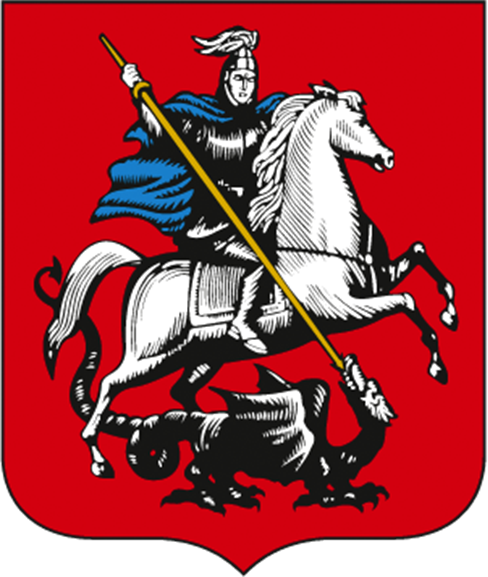From October 16 to 24, concert audiences in Paris, Besancon, Moscow and Perm were treated to a highly original program entitled “Unknown Shostakovich,” a project developed under the leadership of Elena Oparkova, director of the Galina Vishnevskaya Opera Centre, Jean-Louis Gavatorte, curator of classical and contemporary music of the French national agency Culturesfrance, and Emmanuel Hondre, director of the Cite de la Musique concert venue in Paris. The principal purpose of this international project was to introduce French audiences to, and reacquaint Russian audiences with, little-known pages of operatic writing by Shostakovich, as well as to introduce a number of new names from among the younger generation of Russian and French musicians. In addition to Shostakovich’s unfinished operas The Gamblers and The Great Lightning, the concerts included a performance of Ravel’s Piano Concerto in G Major. Without doubt, the combination on a single evening of works by two great composers of the 20th century was justified not only by its relationship to the current Year of France in Russia and Year of Russia in France, but also because of the surprisingly organic unity of the expressive styles of the music on display, despite its having been written by composers with entirely different national and creative mentalities.
Through the efforts of Mstislav Rostropovich and with the blessing of the composer’s widow, Irina Shostakovich, The Gamblers, based on Gogol’s comedy of the same name, and The Great Lightning, with a libretto by Soviet poet Nikolai Aseyev and preserved in the form of an unfinished cycle of operatic episodes, were prepared for performance by soloists of the Galina Vishnevskaya Opera Centre. Nothing is known regarding the composer’s work on The Great Lightning. Moreover, it was long thought that he in fact had not even begun to set the libretto to music. But in 1980, Gennady Rozhdestvensky discovered the composer’s manuscript, a piano score of the first nine numbers. During the Shostakovich centennial year of 2006, The Gamblers and The Great Lightning were given a single performance at the Holland Festival in Amsterdam (the latter in the form of a suite from the nine surviving numbers). The recent international tour once again presented these rare works of the composer in combination and also received the necessary support and personal approval of Irina Shostakovich.
The Moscow concert took place on October 22 in Tchaikovsky Hall. Taking part in it was the Symphony Orchestra of the Paris Conservatory, with the operas led by Russian conductor Yaroslav Tkalenko and the piano concerto by French conductor Alexandre Bloch. Performing as well was the Chamber Choir of the Moscow Conservatory under the direction of Boris Tevlin. Performance of operas’ roles rested entirely on the strong shoulders of soloists from the Galina Vishnevskaya Opera Centre. The casts of both operas are given over entirely to male voices. Singing in The Gamblers were tenor Oleg Dolgov (Ikharev), baritone Konstantin Brzhinsky (the Comforter), tenor Maxim Sazhin (Krugel), bass Ruslan Roziyev (Shvokhnev), bass Pavel Sorokin (Alexei) and bass Yury Zaltsman (Gavrushka). The same singers performed in The Great Lightning: Maxim Sazhin (Yegor, Tommi, tenor solo), Pavel Sorokin (Semyon and the Voice from the Loudspeaker), Oleg Dolgov (the Architect), Konstantin Brzhinsky (the Manager), Yury Zaltsman (Mayofel) and Ruslan Roziyev (bass solo).
Grasping the slow, monotonic music of The Gamblers required considerable intellectual effort on the part of the audience. All of us, of course, have read Gogol’s The Gamblers, and it is therefore obvious to us that such a small-scale and absolutely non-operatic subject, as well as the tough and tortuous musical style of Shostakovich, requires in the first instance a clear rendition of Gogol’s words. Unfortunately, the words which the composer succeeded in putting to music could not always be heard by the Russian-speaking public, as the diction left much to be desired.
The Great Lightning is quite a different matter. The distinctive characters are nothing other than easily recognized, exaggerated types of so-called agitational-pamphlet theater, in a libretto of the Soviet era that essentially speaks of that era, with indispensible ideological opposition to the capitalist world. A series of dance-like symphonic episodes conjuring up the world of the café and the bright parodies of music by Gliere and Beethoven and the Russian folk song “A birch tree stood in the field” clearly connect the music to the bourgeois-Nepman style of the composer’s ballet The Golden Age. Like the ballet, The Gamblers takes place in a specific place and time, in this case in a hotel in a hostile capitalist country where the arrival is awaited of workers from the Soviet Union. All of the merry grotesqueness of the opera was greeted with enormous enthusiasm by the audience and concluded the evening on a happy and optimistic note.
The Symphony Orchestra of the Paris Conservatory, with much credit due its Russian and French conductors, was simply outstanding. Its highly professional playing provided marvelous thrills to the listeners, not only in performing “its own” Ravel, but also in its interpretation of the rarities of “our” Shostakovich.



